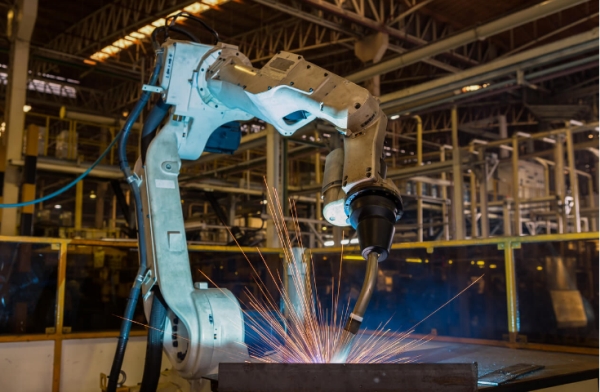In the current day and age, technology has a major impact on all aspects of our lives, as well as several industries. One of the main industries that has reaped the benefits in recent years is the manufacturing sector. The way in which the industry is managed has changed dramatically, with workforces carrying out 47% less labor than just a few years ago.

The bottom line is, that technology has well and truly come into play as a result of higher demands on companies to deliver, which has meant adjustments have had to be made in terms of how the manufacturing industries are now managed.
Here are four ways in which technology advancements are set to improve the manufacturing sector.
1. Operations management
Cloud computing has been around for some years, however, it has well and truly made its mark on the manufacturing industry in terms of how products are designed, how they’re used by customers, and in terms of monitoring supply chains and assessing overall operations. Digital platforms such as the likes of Cloud Computing are now an integral process of manufacturing, to the extent that 25% of all manufactured products have been created and developed with the art of digitalization.
2. Increasing productivity
Technology has the ability to ensure greater productivity in the workplace, by generating more products at a much quicker pace than on a manual basis. This is typically achieved through several procedures, including the act of scheduling, the observation of daily inventories, and monitoring workflow.
Automation is one of the key tactics used within manufacturing, as it reduces the risk of error, which can often create delays in the production time. Collaborative robots (cobots) also increase both the productivity of workers, as well as maintaining safety and welfare, to a certain degree. This development in technology means that the production of waste is reduced and as a result, it is much easier for businesses to slash their carbon footprint within the production process.
Any leftover materials can easily be bound together using baling wire from Baling Wire Direct, before being compactly stored in the warehouse before being sent off to recycling companies or landfill.
3. Product management
Manufacturing industries aim to ensure that every single product that is created is done so to the highest standard. While this was once extremely difficult to achieve, due to human trial and error, it is now very much in place, thanks to the developments in technology.
Artificial Intelligence (AI) is now an integral aspect of the production line, and instantly recognizes any imperfections that need to be improved before the product is deemed fit for sale.
4. Mass customization
We are now entering a world where mass customization is becoming the norm, as businesses have a duty to respond to customers’ demands, while also having the ability to grow their business on a much larger scale. Although customers can design certain aspects of their product, costs are kept down as a result of mass production. Certain technologies have now been introduced to personalize services and products to the individual needs of the customers, while still allowing businesses to generate a substantial profit.
It’s easy to see that the manufacturing industry must keep on its toes in the coming years, and prepare itself for the changes and challenges that the ever-changing developments in technology are likely to create.
